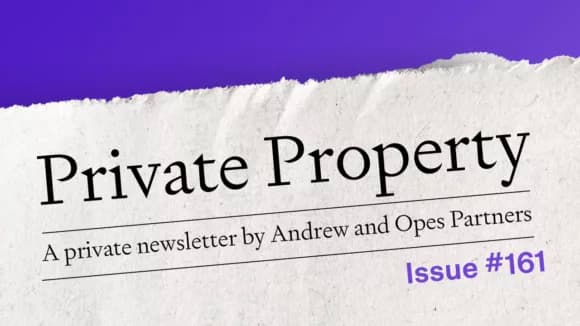
Property Investment
Property Investment
2 min read

Author: Andrew Nicol
Managing Director, 20+ Years' Experience Investing In Property, Author & Host
House prices are flat. They’ve been stuck in neutral for the last 2 years.
Some property forecasters reckon house prices might go up ~5% over the next 12 months.
But is that really going to happen?
And that’s exactly what most people think: “House prices are flat now… they’ll probably stay that way.”
Here’s a graph showing how fast house prices have gone up and down.
The worst return ever is on the left. The best return ever is on the right.
You can see that house prices tend to go up more often than they go down.
In fact, they’ve gone up roughly 5 out of 6 times.
That’s interesting … but here’s the twist.
Look at the graph again 👇 but this time, see what happened after those big swings…
The first graph still shows the worst-to-best returns. The second graph shows what happened in the immediate 12 months following.
Do you spot a strong trend?
If property prices fall one year, does that mean they fall again the next year?
There’s virtually no robust connection between what just happened and what happens next.
In other words, just because the market was strong one year doesn’t mean it’ll be strong the next year.
Similarly, a flat market one year doesn’t mean that it’s a flat market next year.
Turns out past performance really doesn’t guarantee future returns.
The market doesn’t owe you a pattern
If you were investing in March 1993, you would have looked back over the last year and thought: “Property prices barely budged!”
They only went up 2.2% over the prior 12 months.
So you might’ve thought, “This market’s going nowhere.”
But over the next 12 months after that, property prices went up 12%.
What about July 2021?
If you were investing, you would have looked back over the last year and thought, “Wowee, property prices are up 30%+. Surely there’s more growth to come?”
Nope. The next year, property prices fell 3%. Ouch.
This randomness isn’t just at the national level. It happens in cities, too.
Here’s the same data for Palmerston North:
You can see in the graph that prices have risen about 2 out of 3 years.
But those good years aren’t always followed by more good years.
The bad years aren’t always followed by more bad years.
Whether it’s Auckland or Palmy, the lesson doesn’t change.
Momentum feels safe. But randomness rules.
This is about how random returns can be. And how it fools investors.
You can’t time the market.
Just because it’s slow now doesn’t mean it’ll stay that way.
The truth is that long-term investors know that what’s happening today doesn’t impact what’s happening over the next 12 months.
That’s not to say that property cycles don’t exist. They do.
But stop looking in the rear-view mirror. The road ahead doesn’t care what just happened.
If you drive using the rear-view mirror – don’t be surprised if you crash.
Managing Director, 20+ Years' Experience Investing In Property, Author & Host
Andrew Nicol, Managing Director at Opes Partners, is a seasoned financial adviser and property investment expert with 20+ years of experience. With 40 investment properties, he hosts the Property Academy Podcast, co-authored 'Wealth Plan' with Ed Mcknight, and has helped 1,894 Kiwis achieve financial security through property investment.
This article is for your general information. It’s not financial advice. See here for details about our Financial Advice Provider Disclosure. So Opes isn’t telling you what to do with your own money.
We’ve made every effort to make sure the information is accurate. But we occasionally get the odd fact wrong. Make sure you do your own research or talk to a financial adviser before making any investment decisions.
You might like to use us or another financial adviser